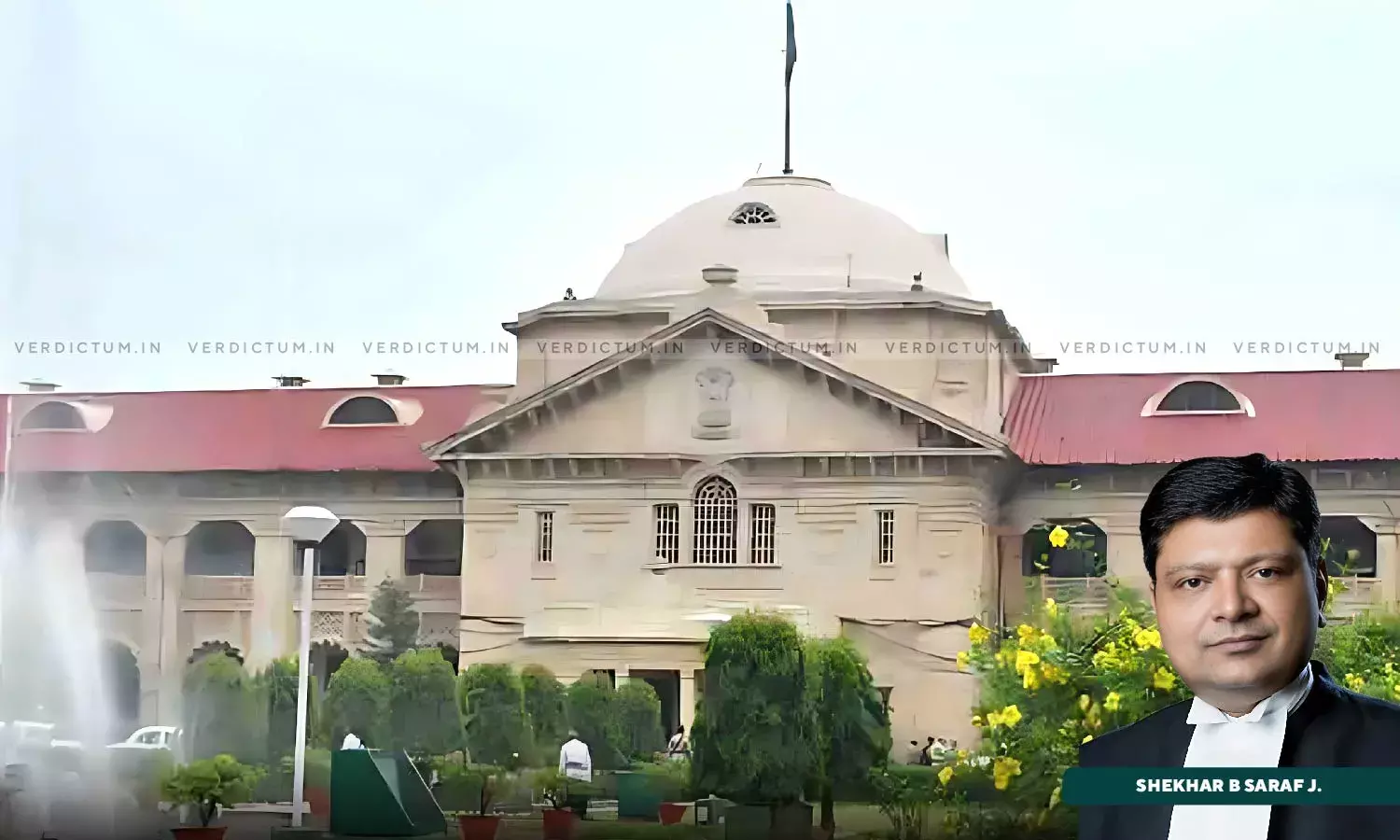A & C Act| Party Who Voluntarily Invoked Jurisdiction Of A Court U/S 9 Are Estopped To File Petition U/S 34 Before Another Court: Allahabad HC
The Allahabad High Court has observed that once the parties have invoked the jurisdiction of a court, in this case under Section 9 of the Arbitration and Conciliation Act, they are estopped from invoking the jurisdiction of another court for application under Section 34 of the Act.
The Petition was filed under Article 227 of the Constitution of India assailing the order passed by the Commercial Court, Gautam Buddh Nagar which held that it lacks the territorial jurisdiction to adjudicate the application filed under Section 34 of the Arbitration and Conciliation Act, 1996, filed by the Petitioner.
The Bench of Justice Shekhar B Saraf observed, “The principle of estoppel operates to prevent a party from resiling its prior representations or conduct to the detriment of another party. Here, the respondent’s prior invocation of the jurisdiction of the court at Gautam Buddh Nagar under Section 9 of the Act constitutes a deliberate and unequivocal submission to the authority of that court. Having voluntarily invoked the jurisdiction of the said court, the respondent is estopped from adopting a position contrary to its prior conduct to the detriment of the petitioner. Additionally, the doctrine of forum non conveniens, which empowers a court to decline jurisdiction in favour of a more appropriate forum, is not applicable in the present case. The respondent’s attempt to evade the jurisdiction of the court at Gautam Buddh Nagar is nothing but an effort to the circumvent the jurisdictional constraints imposed by Section 42 of the Act.”
Senior Advocate Manish Goyal appeared for the Petitioners while Advocate Munna Pandey appeared for the Respondents.
The crux of the dispute revolved around the bar placed by Section 42 of the Act which encapsulates the principle of jurisdictional exclusivity. The parties entered into an agreement and subsequently, disputes arose between them. The Respondent herein filed an application under Section 9 before the Commercial Court, Gautam Buddh Nagar. The Petitioners filed an Application under Section 11 of the Act before the High Court of Delhi and the Court appointed a sole arbitrator who, consequently, passed an award.
The Court rejected the contention made by the Respondent that since the Application under Section 11 was made before the Delhi High Court, therefore, all subsequent applications should be made before the Delhi High Court. “The rationale underlying this exception lies in the recognition of the distinctive nature of applications under Section 8 and Section 11 of the Act, which necessitate specialized adjudication and prompt intervention. Furthermore, since the arbitral clause between the parties, provides for only a venue and not a seat, it is not open for the respondent to argue that the venue in the instant case should be exalted to the status of seat. This is due to the bar placed by Section 42 of the Act since an application under Section 9 had already been filed before the District Court at Gautam Buddh Nagar.”, the Court said.
The Court placed its reliance on M/s Ravi Ranjan Developers Pvt. Ltd. v. Aditya Kumar Chatterjee (2021 SC), M/s Gammon Engineers & Contractors Pvt. Ltd. v. The State of West Bengal (2023 SC) and Manjusha Premi and Others v. Prakash Gupta and Ors. (2016 All HC) in which it was propounded that once the parties have invoked the jurisdiction of a court, in this case under Section 9, they are estopped from invoking the jurisdiction of another court.
Accordingly, the Court held that in light of Section 42 of the Act, the application under Section 34 of the Act, or for that matter any other application under Part 1 of the Act, will have to be made at Gautam Buddh Nagar.
Hence, the Court allowed the petition.
Cause Title: M/s Devi Dayal Trust and Ors. v. M/s Rajhans Towers Pvt. Ltd. (Neutral Citation: 2024:AHC:89177)
Appearances:
Petitioners: Senior Advocate Manish Goyal and Advocate Nikhil Mishra
Respondent: Advocates Munna Pandey and Harshit Pandey




